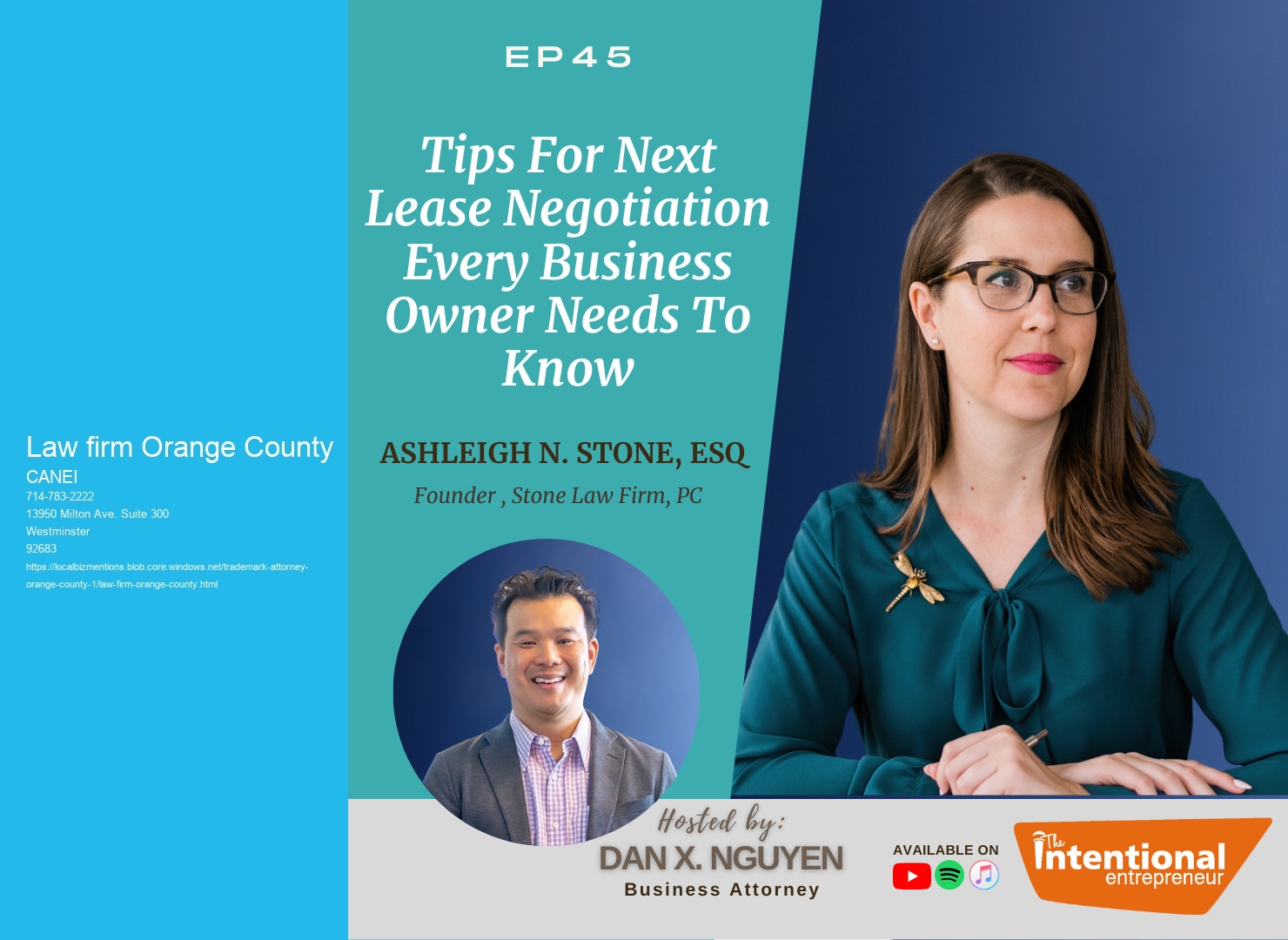Grasping Trademark Clearance Searches: A Step-by-Step Guide for Dealing With Your Attorney
Introduction:
Trademark clearance searches are crucial steps in the procedure of protecting and protecting your brand name identification. Lawyer Orange County . Carrying out these searches with the assistance of a skilled attorney makes certain that your trademarks are not infringing on existing civil liberties and helps reduce possible legal dangers. In this extensive guide, we'' ll walk you with the procedure of performing hallmark clearance searches successfully with your attorney.
Understanding Trademark Clearance Searches:
Prior to diving into the procedure, it'' s essential to recognize the purpose of trademark clearance searches. These searches aim to recognize existing trademarks that might conflict with yours. By revealing prospective disputes beforehand, you can avoid legal disputes and the costly consequences that feature them. Your attorney will play an essential function in leading you via this detailed process.
Step 1: Define Your Trademark:
Begin by clearly specifying your trademark. This includes identifying the details items or solutions your trademark will represent and identifying any variants or alternative punctuations. Your attorney will certainly assist you in crafting an accurate summary that lines up with your business goals.
Step 2: Determine Relevant Classes:
Hallmarks are classified into details classes based on the type of products or solutions they represent. Your attorney will aid you identify which courses pertain to your trademark and perform searches within those groups.
Law firm Orange County - trademark registration
- trademark registration
- account
- fdd
Step 3: Conduct Initial Searches:
Initial searches involve scanning existing databases for hallmarks that might contravene yours. Your attorney will certainly make use of specialized devices and databases to perform these searches successfully. These databases consist of the USA License and Trademark Office (USPTO) data source, state trademark databases, and worldwide databases where applicable.
Step 4: Evaluate Search Engine Result:
As soon as preliminary searches are full, your attorney will certainly analyze the outcomes to recognize possible conflicts. This entails analyzing the resemblance between your trademark and existing marks, considering factors such as spelling, pronunciation, and total perception. Your attorney will certainly additionally review the strength of existing trademarks and their possibility of causing confusion.
Tip 5: Examine Danger and Strategize:
Based upon the analysis of search engine result, your attorney will certainly assess the level of danger associated with moving forward with your trademark. If possible problems are recognized, your attorney will create methods to mitigate these dangers. This may involve customizing your trademark, working out with existing hallmark holders, or going after alternative branding choices.
Action 6: Comprehensive Clearance Search:
Sometimes, a much more in-depth clearance search may be required to reveal potential problems that may have been missed throughout initial searches. Your attorney will perform an extensive search, making use of added resources and techniques to ensure comprehensive insurance coverage. This step supplies an additional layer of defense against future legal difficulties.
Step 7: Assessment and Choice Making:
small businessThroughout the process, your attorney will supply support and guidance based on their experience in hallmark law. They will certainly provide the searchings for of the clearance searches and suggest the best strategy based upon your service purposes and take the chance of tolerance. trademark registration Eventually, the decision to proceed with your trademark enrollment depends on your hands, informed by the insights supplied by your attorney.
Conclusion:
Conducting hallmark clearance searches with your attorney is a crucial aspect of protecting your brand name identification and minimizing legal risks. By complying with these actions and leveraging the expertise of your attorney, you can navigate the complexities of trademark law with self-confidence. Keep in mind, investing time and resources in comprehensive clearance searches upfront can save you from expensive legal fights in the future, making certain the lasting success of your company.
